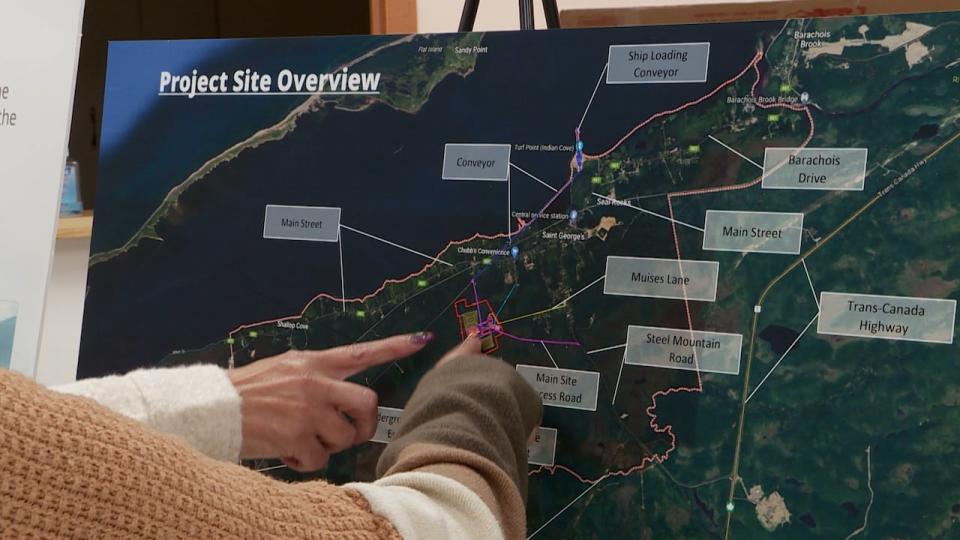Salt mine proposed for Newfoundland's west coast awaiting results of environmental assessment

A major road salt mine proposed for Newfoundland's west coast is getting closer to reality, with the project awaiting the results of a provincial environmental assessment.
Alasdair Federico, Atlas Salt's vice-president of corporate affairs, says what the company is calling the Great Atlantic Salt Project will be a success for the region.
"We are generating a lot of money for the local economy. We will be employing at least 170 people in permanent full time jobs when the mine is operating. And a number more than that in the construction phase," Federico told CBC News earlier this month.
In what Atlas Salt is calling the Great Atlantic Salt Project, millions of tonnes of underground salt would be extracted from a flat deposit between St. George's and Flat Bay. The company says construction will cost close to $480 million over five years.
Federico says the 40-hectare area designated for the road salt mine located is not in a forested area, isn't used for hunting or trapping and has no snowmobile or ATV trails.
The mine hopes to produce 2.5 million tonnes of road de-icing salt a year, for at least 30 years, move it by conveyer belt to the deepwater port of Turf Point, where it will be shipped to parts of Canada and the United States.
If the environmental assessment approval comes in April as expected, said Federico, Atlas Salt could be hiring contractors later this year.

An Atlas Salt map displayed at one of its public consultations in St. George's shows the proposed area for the road salt mine. (Colleen Connors/CBC )
Atlas Salt has held several public consultations in St. George's with more than 100 community members showing up. Dust and noise have been the biggest concerns, with the company planning to run its conveyer system two kilometres through the town to the port. Federico said the system will run along the roadway and will be covered the entire way.
"There shouldn't be any fugitive dust from the conveyer," he said, adding that the system's design has factored in wildlife and traffic.
The public can now weigh in on the project. People have until April 4 to submit their concerns or comments to the provincial government, and the minister of environment and climate change's decision is due April 14.
Download our free CBC News app to sign up for push alerts for CBC Newfoundland and Labrador. Click here to visit our landing page.


